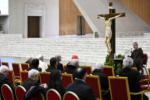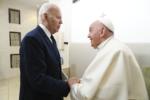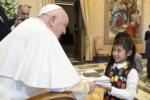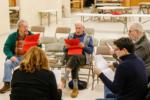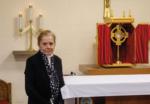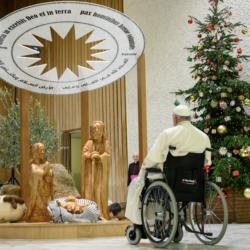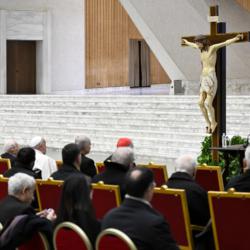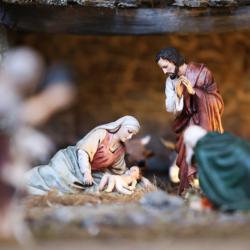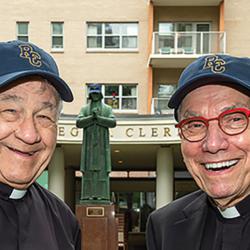Synodality, an antidote to polarization, helps mission, cardinal says
VATICAN CITY (CNS) -- At the end of a multiyear process of listening, praying, discussing and discerning, Cardinal Joseph W. Tobin of Newark, New Jersey, said he hopes the Synod of Bishops can give Catholics four practical suggestions for being a more "synodal" church.
"What four things? I can't tell you right now, but I sure wish we could give four pieces of guidance to the people of God across the world," the cardinal told Catholic News Service Oct. 4.
In a message to the people of his archdiocese, Cardinal Tobin said synodality -- which involves listening to one another and the Holy Spirit and helping every baptized person take responsibility for their role in the church -- "is not an end in itself; we're not pursuing synodality as the ultimate goal."
Instead, he said, synodality "is a way of carrying out the mission that has been entrusted to us, and is, without a doubt, the responsibility of every baptized person."
Asked why it is so important to the church now, Cardinal Tobin said that in the "marvelous mosaic of the North American church, I think synodality is absolutely necessary as an antidote to polarization and division."
For instance, he said, "it struck me a year or two ago that we as bishops in the United States, in our assemblies, have never been able to speak about any of the exhortations of Pope Francis" -- from "Evangelii Gaudium," or the "Joy of the Gospel," to "Fratelli Tutti" -- when discussing the plans and priorities of the church in the United States.
"It dawned on me that perhaps we lack that sense of synodality that unlocks those documents and shows us the way forward," he said. It is important "to listen to others, so that when we propose priorities, we're actually speaking because we've listened to the people."
Pope Francis set up study groups to delve into several of the topics thousands of people raised in the preparatory process for the synod -- topics like women's role in the church, the procedure for choosing bishops, designing seminary programs to help priests learn to collaborate, ministry to LGBTQ Catholics and relations between bishops and members of religious orders.
While members of the synod heard reports on the study groups' progress Oct. 2, those topics were not treated in-depth in the working document that will guide synod discussions through Oct. 27.
Cardinal Tobin said he did not think the topics were "off the table," but that the study groups were a way "to keep those themes alive" without letting any one of them "capture the whole imagination of the synod, because we are still trying to figure out what a synodal missionary church looks like."

